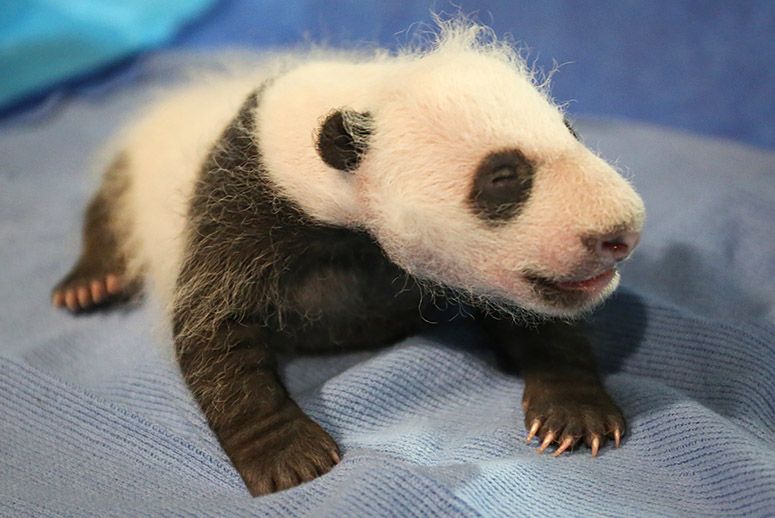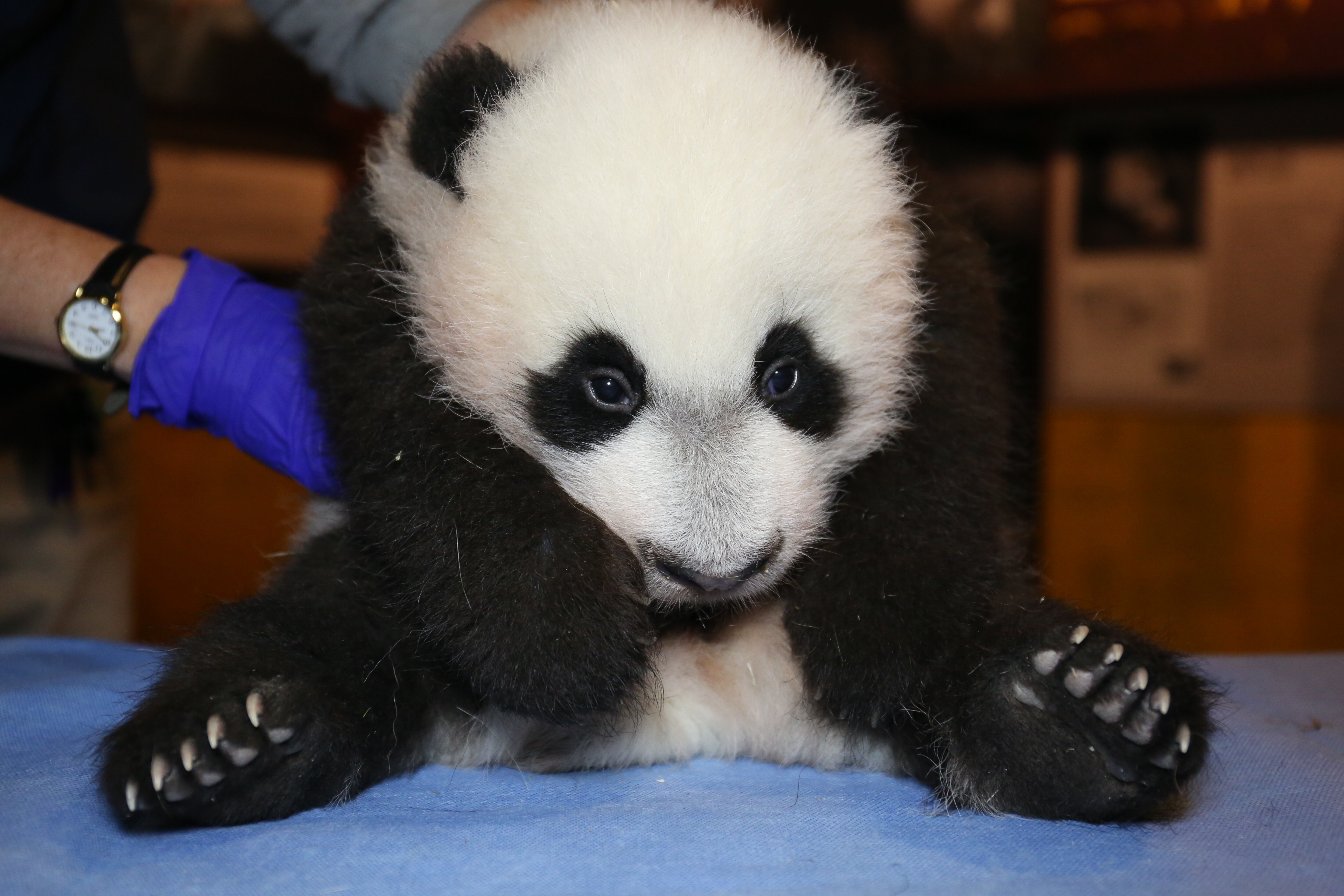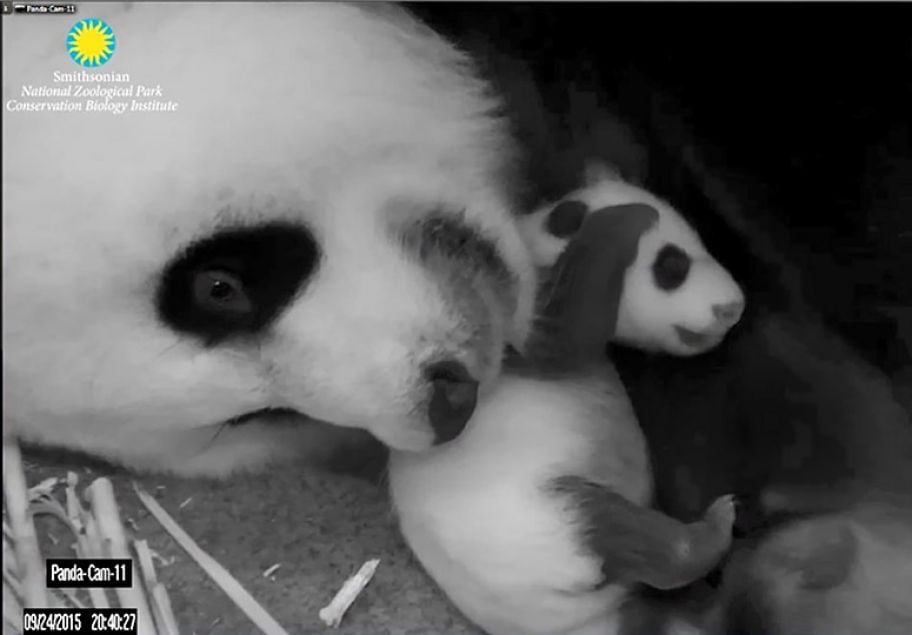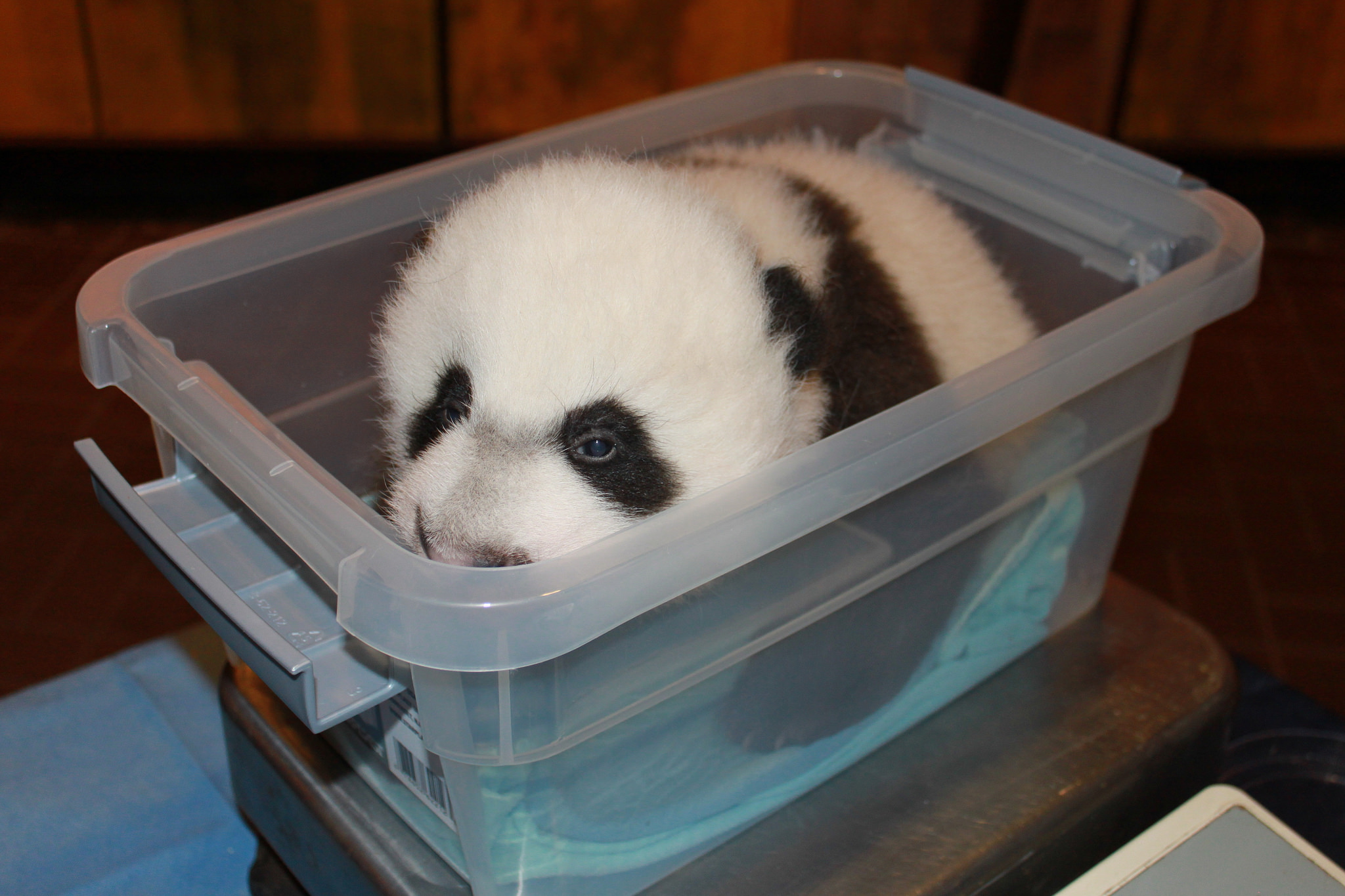
On September 25th, US first lady Michelle Obama and China's first lady Peng Liyuan announced that the recently born giant panda at Smithsonian's National Zoo in Washington D.C. would be called Bei Bei. The name which means 'precious treasure' in Mandarin Chinese, was selected from a list suggested by officials at the zoo and the Wolong Nature Reserve in China.
Bei Bei is one two cubs that Mei Xiang a giant panda on loan from China gave birth to on Saturday, August 22nd. However, soon after, the zookeepers noticed that she was having a hard time handling the tiny hairless cubs that are entirely reliant on the mother for food, warmth, and protection.

They, therefore, decided to remove the one she was not close to and place it in an incubator. The panda team's plan was to switch the two every few hours so that both could receive the nurturing they need from their mother. However, by Sunday, Mei Xiang refused to swap, instead deciding to focus on the stronger of the two cubs.
Though this may seem cruel, experts say this instinct is common in giant pandas in the wild. That's because the tiny cubs require a lot of attention, which make it impossible for mothers to look after more than one at a time. Left with little choice, the zoo's panda team moved the second one in an incubator and tried to raise it themselves. Unfortunately, the baby kept getting increasingly weaker and passed away on Wednesday, August 29th.

While that was a slight setback, the good news is that Bei Bei, who celebrated his 45-day milestone on October 7th, is doing extremely well. Now weighing a healthy four and a half pounds, the fluffy black and white bundle is starting to open his eyes and even sprouting some baby teeth.
Bei Bei will continue to be nurtured by Mei Xiang until he is just over a year old. Then similar to pandas in the wild, he will move away from 'home', which in this case means getting his own enclosure. When he turns five, Bei Bei will head to the special giant panda breeding program at the Wolong Nature Reserve in China's Sichuan Province and hopefully, help produce some offspring of his own.

Endemic to China, giant pandas largely feed on bamboo, though they may eat other foods such as honey, bananas, oranges, yams and even fish, if available. The majestic animals have a lifespan of about 15 years in the wild, and 20 in captivity. Unfortunately, loss of habitat due to deforestation has reduced their numbers drastically. There are currently only about 2,000 (1,600 in the wild and 376 in captivity) giant pandas left in the world, which is why the news of every newborn is met with such joy.
Resources: nationalzoo.si.edu, cnn.com, iflscience.com